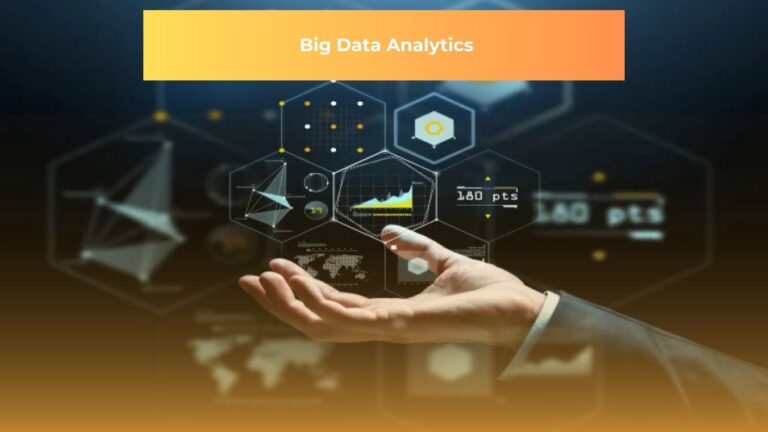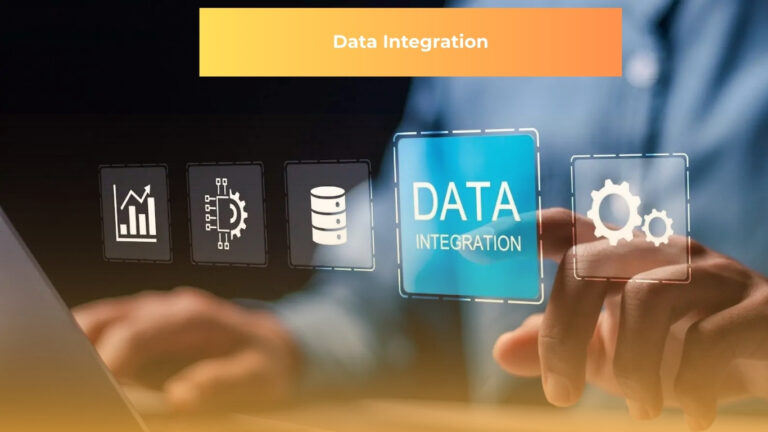The need for trusted data solutions has never been more critical as enterprises grapple with exponential data growth—from 130 exabytes in 2005 to a projected 7,910 exabytes by 2026. So, how to transform vast volumes of information into reliable insights that drive business growth?
These solutions form the backbone of modern digital transformation, enabling businesses to harness data with confidence, security, and compliance.
Trusted data solutions represent more than just technology infrastructure—they embody a comprehensive approach to data management that ensures accuracy, accessibility, and security throughout the entire data lifecycle.
As the global trusted data ecosystems market reaches $3.85 billion (2026) with a projected CAGR of 15.60% through 2033, organizations worldwide are recognizing that data trust solutions are essential investments for competitive advantage.
Understanding Trusted Data Solutions in the Modern Enterprise

Trusted data solutions encompass collaborative frameworks that enable organizations to securely share, access, and analyze data while preserving privacy and maintaining governance. At their core, these solutions address three fundamental pillars: data quality, data security, and data compliance. Each pillar works in concert to reduce risk and enhance trust across every facet of data management.
The foundation of trusted data solutions lies in their ability to handle the three Vs of Big Data: volume, variety, and velocity. Organizations no longer deal solely with structured relational data—they must manage semi-structured data like web logs and social media feeds, alongside unstructured data including images, audio, and video files. Network security administrator trusted data solutions integrate advanced security protocols to protect this diverse data landscape from unauthorized access and cyber threats.
According to research, only 46% of organizations state they can trust their data as of 2024. This crisis of confidence in data quality undermines business outcomes, causing leaders to hesitate in decision-making and analysts to waste cycles validating information instead of extracting insights. Trusted data solutions directly address this challenge by implementing automation-first governance and continuous quality monitoring.
The Business Case for Trusted Data Solutions
The market momentum behind trust data solutions reflects their strategic importance. The global IT services outsourcing market, which encompasses data management services, is projected to reach $662 billion in 2026 and $1.35 trillion by 2034. Within this landscape, trusted data solutions enable organizations to achieve 34% operational efficiency gains and 27% cost reduction within 18 months of AI adoption.
Financial institutions demonstrate the tangible value of trusted data solutions through fraud detection capabilities. By implementing Complex Event Processing (CEP) with data trust solutions, banks can analyze transaction patterns in real-time, identifying unusual spending behaviors—such as French train tickets purchased online from a US IP address minutes after a restaurant bill in China. These capabilities reduce fraud losses while maintaining customer trust.
Healthcare organizations leverage trusted data solutions to improve patient outcomes while maintaining HIPAA compliance. By creating unified patient records through enterprise data platforms, hospitals enhance diagnosis accuracy and reduce test duplication. The ability to trust data integrity directly translates to better clinical decisions and improved patient safety.
Core Components of Trusted Data Solutions

Data Governance Framework
Effective trusted data solutions require a robust governance framework that defines clear roles and responsibilities. Data stewards oversee day-to-day quality, compliance, and access management, while data owners ensure accuracy and relevance for specific domains. This organizational structure creates accountability throughout the data lifecycle.
The framework must balance security with functionality through role-based and attribute-based access controls (RBAC/ABAC). Network security administrator trusted data solutions implement these controls alongside data masking, tokenization, and encryption at rest and in transit. Audit logs track data access patterns, creating transparency essential for regulatory compliance.
Master Data Management (MDM)
Master Data Management serves as a critical enabler of trusted data solutions by creating a single, unified view of enterprise data. MDM reconciles different data silos to establish a “single version of truth,” either through physical consolidation or federation of best sources. This approach ensures all applications and business processes reference accurate, consistent data.
Organizations implementing MDM within their data trust solutions achieve significant operational benefits. A centralized customer data system, for example, improves marketing effectiveness, enhances sales processes, and delivers more customer-centric experiences. The enterprise-wide consistency reduces costs associated with organizational integration needed for transformative strategies.
Advanced Analytics and AI Integration
Trusted data solutions in 2026 increasingly incorporate artificial intelligence and machine learning capabilities. With 78% of organizations now using AI in at least one business function—up from 55% just one year earlier—the demand for AI-ready data has intensified. Data trust solutions must ensure data quality sufficient for training reliable AI models, as generative AI is only as trustworthy as the data powering it.
Predictive analytics represents a key application area for trusted data solutions. Transport service operators, for instance, use predictive maintenance algorithms executed on analytics platforms to forecast vehicle issues before outages occur. This proactive approach improves fleet serviceability more effectively than traditional regular maintenance schedules.
Implementation Best Practices for Trusted Data Solutions
Start with Clear Business Objectives
Successful trusted data solutions align directly with business outcomes rather than existing in isolation. Organizations should interview key stakeholders to understand critical business processes dependent on data and prioritize goals for the next 12-18 months. This business-first approach ensures governance initiatives support revenue, compliance, and operational targets.
Establish Automated Compliance Mechanisms
Automation proves essential for scalable trusted data solutions. Automated tools enforce access controls, detect policy violations, and apply data classification across diverse systems without manual intervention. This approach reduces human error and accelerates compliance efforts, particularly in complex multi-cloud environments.
Workflow engines, policy enforcement tools, and automated alerts handle tasks such as access reviews, anomaly detection, and data masking. Automated compliance reporting streamlines regulatory audits and shortens incident investigation timeframes. For network security administrator trusted data solutions, automation enables 24/7 monitoring with circuit-breaking mechanisms that halt processes when quality thresholds are breached.
Implement Data Quality Monitoring
Continuous data quality monitoring forms a cornerstone of effective trusted data solutions. Advanced systems include Data Trust Score (DTS) certifications as standard service-level agreements, providing measurable confidence in data reliability. These systems focus on significant anomalies rather than false positives, freeing data teams to prioritize strategic initiatives.
Next-generation platforms leverage machine learning algorithms to autonomously generate data quality rules. These self-learning rules adapt in real-time to evolving business requirements and market conditions, ensuring continuous accuracy without the unsustainable burden of manual rule creation.
👉 Partner with HBLAB to implement trusted data solutions
Industry-Specific Applications of Trusted Data Solutions
Financial Services
The finance sector leads in adopting trusted data solutions, with 89% AI adoption rates focused on fraud detection and risk management. Financial institutions implement these solutions to achieve multiple objectives: real-time fraud prevention, customer intimacy enhancement, and regulatory compliance.
Healthcare and Life Sciences
Healthcare organizations with 78% AI adoption rates rely on trusted data solutions to manage sensitive patient data while maintaining HIPAA compliance. These solutions enable secure data sharing for research while protecting patient privacy through de-identification techniques and federated learning approaches. Trusted data solutions in healthcare improve operational efficiency through unified electronic health records.
Retail and E-Commerce
Retail companies leverage trusted data solutions for customer analytics and inventory optimization. With 71% AI adoption for personalization and recommendation engines, retailers extract competitive advantage through Business Analytics Shared Services that provide Customer Marketing Analytics, Inventory Optimization, and Operations Analytics.
These solutions enable retailers to derive insights into customer needs from vast transaction histories, improve service levels, minimize inventory holding, and increase operational efficiency. The shared infrastructure approach lowers adoption costs and shortens implementation timeframes.
Technology Infrastructure for Trusted Data Solutions
Cloud and Hybrid Architectures
Modern trusted data solutions embrace cloud-native and hybrid architectures to deliver flexibility and scalability. The AWS Data Strategy Guide emphasizes that successful digital businesses build comprehensive, integrated, and governed data strategies on cloud infrastructure. These platforms support data ingestion, transformation, quality management, and master data management across multiple clouds.
Organizations implementing data trust solutions on cloud platforms benefit from policy-driven automatic data placement across storage tiers, optimizing the blend of performance and cost. Multi-cloud capabilities provide unprecedented data availability without requiring fail-overs, automatically reading from and writing to multiple public and private clouds.
Security and Encryption
Network security administrator trusted data solutions implement end-to-end encryption strategies, used by 97% of data protection officers to protect data. Strong encryption prevents unauthorized access during storage and transmission, while secure architectures reduce exposure to cyber threats across systems and networks.
Compliance frameworks significantly influence encryption standards, with GDPR shaping approaches for 39% of US data protection officers. Trusted data solutions must accommodate multiple frameworks including HIPAA (30%), CCPA (16%), and PCI DSS (13%), adapting security controls to meet varied regulatory requirements.
Data Integration and Processing
The Hadoop ecosystem remains fundamental to many trusted data solutions, providing distributed computing capabilities through MapReduce and the Hadoop Distributed File System (HDFS). These technologies enable parallel processing of massive datasets across commodity hardware, democratizing access to big data analytics.
NoSQL database management systems complement data trust solutions by handling semi-structured and unstructured data efficiently. Key-value stores, document-oriented databases, and graph databases each serve specific use cases within comprehensive trusted data solutions architectures.
Measuring Success with Trusted Data Solutions
Key Performance Indicators
Organizations evaluating trusted data solutions should track multiple KPIs aligned with business objectives. Data quality metrics include accuracy rates, completeness percentages, and consistency scores across integrated systems. Security metrics monitor access violations, encryption coverage, and incident response times.
Business impact metrics demonstrate ROI from trusted data solutions implementations. These include decision-making speed improvements (38% faster with data analytics), customer retention rate increases, operational cost reductions (27% average), and revenue growth from data-driven initiatives.
Return on Investment
The financial returns from trusted data solutions extend beyond direct cost savings. Organizations with data-driven decision-making cultures achieve 5-6% higher productivity than industry norms. Early adopters of Big Data technologies—including Facebook, LinkedIn, Walmart, and Amazon—demonstrate how data trust solutions create sustainable competitive advantages.
Investment in trusted data solutions also mitigates risk. Data breaches lasting over 200 days cost an average of $5.46 million, while proactive security measures significantly reduce both breach likelihood and impact. The 88% of SMBs experiencing ransomware-related breaches underscores the critical importance of robust network security administrator trusted data solutions.
Contact our expert team for a free consultation!
The Future of Trusted Data Solutions
Emerging Technologies
The convergence of quantum computing, edge computing, and artificial intelligence will reshape trusted data solutions by 2027. The National Institute of Standards and Technology has finalized its first three post-quantum encryption standards, laying groundwork for future-proof data protection as quantum threats emerge.
Edge AI deployment, planned by 73% of organizations, will shift trusted data solutions architectures toward distributed processing for real-time analytics and enhanced privacy. This evolution requires data trust solutions that maintain governance and quality controls across edge devices, cloud platforms, and on-premises systems simultaneously.
Industry Collaboration
The maturation of trusted data solutions increasingly depends on cross-industry data ecosystems. The case studies from the Royal Academy of Engineering demonstrate federated platforms for suburban and rural data sharing, secure ecosystems for manufacturing and logistics, and integrated facilities for aerospace product design.
These collaborative frameworks exemplify how data trust solutions enable value creation beyond individual organizational boundaries. Data sharing platforms, federated data systems, and blockchain-enabled data networks represent the next generation of trusted data solutions supporting innovation ecosystems.
HBLAB: Your Partner in Trusted Data Solutions
In an era where data reliability determines competitive advantage, HBLAB stands out as a strategic partner for implementing trusted data solutions tailored to your organization’s unique requirements. With over 630 professionals, including 30% senior-level employees with 5+ years of experience in complex projects, HBLAB brings proven expertise in delivering high-quality, scalable data infrastructure.

Our data trust solutions leverage CMMI Level 3 certification standards, ensuring process excellence in every engagement. We understand that network security administrator trusted data solutions require more than technical capability—they demand deep domain knowledge across applications, storage, and networking to take a holistic view of your data ecosystem.
Key Capabilities:
- AI-Driven Innovation: With AI expertise since 2017 and partnerships including VNU’s Institute for AI, HBLAB integrates advanced machine learning capabilities into trusted data solutions that prepare your organization for the future of analytics and automation.
- Cost-Efficient Delivery: Our flexible engagement models—including offshore, onsite, and dedicated teams—deliver 30% cost savings compared to local rates without compromising quality. This efficiency enables you to invest more in strategic initiatives while building robust data trust solutions.
- Strong English Proficiency: Seamless communication ensures accurate requirements gathering, transparent project management, and effective knowledge transfer throughout your trusted data solutions implementation.
- Security-First Approach: We implement enterprise-grade safeguards to protect intellectual property and ensure data security, adhering to stringent compliance requirements including GDPR, HIPAA, and industry-specific regulations.
- Proven Track Record: From fast-growing startups to large-scale enterprises, HBLAB has been a reliable extension of internal development teams, helping businesses scale faster, innovate smarter, and deliver better outcomes through trusted data solutions.
Ready to Build Your Trusted Data Foundation?
Whether you’re beginning to explore trusted data solutions or need expertise to optimize an existing implementation, HBLAB is here to help. Our consulting services start with comprehensive data strategy workshops that help you think big, start small, and scale fast for high-priority use cases.
today. We’ll help you design and implement trusted data solutions that support your business objectives in 2026 and beyond, turning data challenges into competitive advantages.
Conclusion
Trusted data solutions represent the essential infrastructure for enterprise success in 2026 and beyond. As organizations navigate exponential data growth, increasing regulatory requirements, and rising cybersecurity threats, the ability to trust data quality, security, and compliance becomes non-negotiable. The market growth projecting trusted data ecosystems to reach $11.2 billion by 2033 reflects this fundamental shift in how businesses view data management.
Organizations that invest in comprehensive data trust solutions position themselves to capture the full value of digital transformation. By implementing robust governance frameworks, automating compliance mechanisms, and leveraging advanced analytics capabilities, enterprises transform raw data into strategic assets that drive informed decision-making, operational efficiency, and customer satisfaction.
The integration of AI and machine learning with network security administrator trusted data solutions creates new opportunities for proactive security, predictive analytics, and autonomous operations. As 87% of large enterprises implement AI solutions, the competitive advantage increasingly belongs to organizations with trusted data solutions that ensure AI models train on accurate, unbiased, and complete information.
Success with trusted data solutions requires more than technology—it demands organizational commitment to data quality, clear governance structures, and partnerships with experienced providers who understand both technical requirements and business objectives. By taking a strategic, business-aligned approach to data trust solutions, organizations build the foundation for sustainable growth in an increasingly data-driven economy.
CONTACT US FOR A FREE CONSULTATION
FAQ
1. What does trusted data mean?
Trusted data is information with verifiable provenance, quality, and governance so teams can use it confidently for decisions across the business, often validated via lineage, quality checks, and standardized methods that prove accuracy and source authenticity.
2. What do data solutions do?
Data solutions integrate, govern, secure, store, and analyze data to deliver timely, reliable insights—covering ingestion, transformation, warehousing/lakes, access control, MDM, and BI/AI so organizations operate on trusted data at scale.
3. What is the purpose of a trusted data object?
A Trusted Data Object bundles encrypted data with cryptographically bound metadata and usage policies, enabling portable, enforceable protection, auditability, and policy-driven access across clouds and third parties.
4. What is TDS cloud?
TDS commonly refers to Trusted Data Solutions’ cloud-enabled legacy data migration and preservation services that provide secure, compliant, multi‑cloud data management in partnership ecosystems for resilience and recoverability.
5. What is an example of a data trust?
A data trust is a legal/organizational framework where a trustee stewards shared data for beneficiaries; public-sector pilots and sector initiatives demonstrate governance structures for trustworthy data sharing and preservation at scale.
6. What are 5 ways to secure data?
- Encryption at rest and in transit to protect confidentiality.
- Backup and recovery to ensure resilience against loss or ransomware.
- Strong access control with MFA and RBAC/ABAC to limit exposure.
- Network security hardening and monitoring to detect threats.
- Physical security and device controls to prevent unauthorized access.
7. What are the 4 types of data types?
In analytics, four fundamental types are often cited: nominal, ordinal, discrete, and continuous—covering categorical labels, ordered categories, countable values, and real‑valued ranges used for statistical methods selection. In programming, categories span primitive, composite, and user-defined structures that represent data in code.
8. Is a data analyst a high salary?
Yes—benchmarks show strong compensation; in the U.S., average pay is about $82,640 with top earners exceeding $120,500, while global ranges vary by market and seniority.
9. What is a data solutions specialist?
A data solutions specialist designs and implements end‑to‑end data solutions—spanning integration, governance, security, storage, and analytics—to translate business needs into scalable architectures that deliver trusted insights and measurable outcomes.
Read More:
– Digital Transformation Company: How to Turn 70% Failure into Momentum
– Database Development Made Simple: A Friendly Guide for 2026



